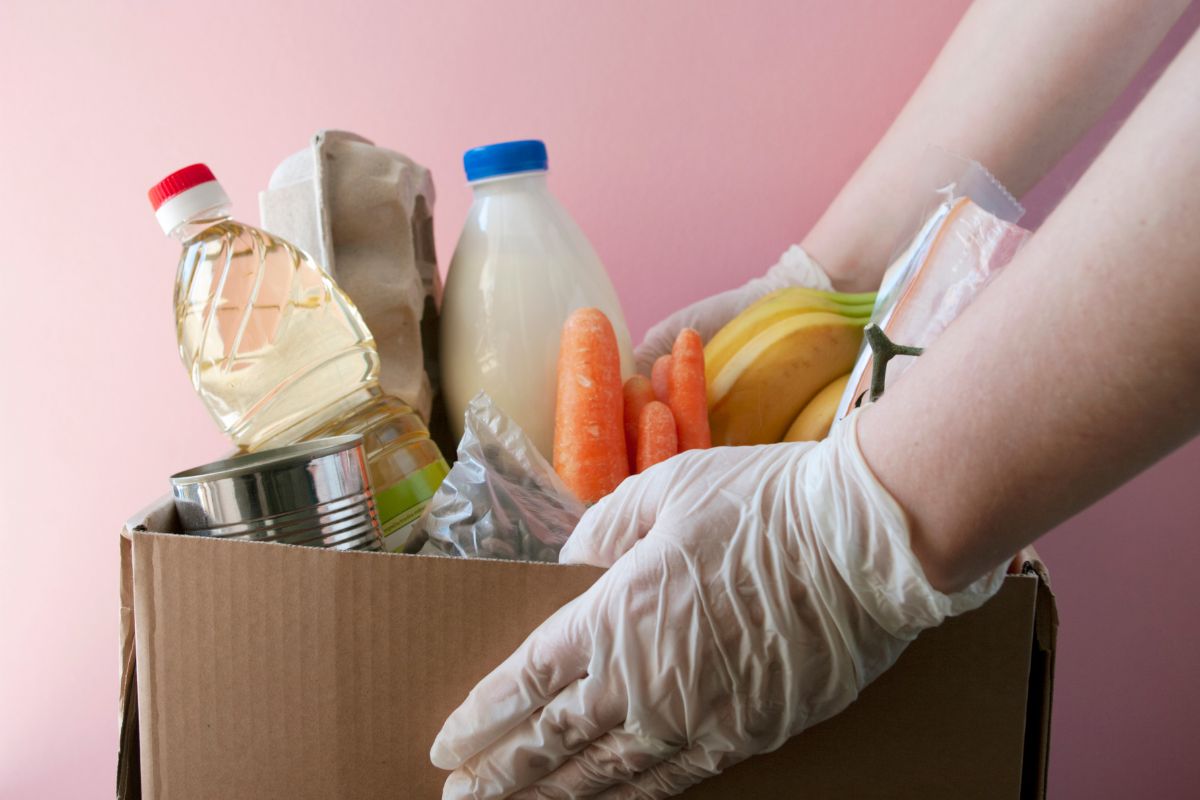
- Learn how to manage high-risk foods, including preparation, cooking and storage.
- Understand the illnesses and impacts that can result from poor handling.
- Our helpful guide answers key questions such as ‘can you reheat chicken’.
Food safety should be a priority for any business that serves food, and you must comply with food safety and hygiene legislation to prevent illnesses. Some foods present a higher risk than others, and this guide outlines how you should prepare and store them to avoid food poisoning.
Businesses that mishandle high-risk foods such as meat, fish and dairy products through cooking, storage and preparation face serious consequences.
Figures released by the Food Standards Agency in February 2020 show there are around 2.4m cases of food poisoning in the UK each year, an increase of one million since 2009.
Not taking steps to prevent bacterial contamination could potentially kill someone, and the resulting damage to the business’s reputation can be catastrophic.
The most basic errors can cause problems, so strong food safety management is critical, including understanding what foods are high risk and how to deal with them.
The illnesses that can result from high-risk foods
Poorly stored, prepared and undercooked food can result in several harmful illnesses, with a range of symptoms. Food poisoning symptoms typically include feeling sick (nausea), vomiting, stomach cramps, diarrhoea and a high temperature of 38c or above. Some illnesses, such as Listeria, can result in serious complications in more vulnerable groups such as people with weakened immune systems, including death in rare cases.
Some of the most common are:
• Campylobacter: These bacteria are the most common cause of food poisoning in the UK, with an estimated 280,000 people affected each year. Cross-contamination from raw poultry and undercooked poultry is the leading cause.
• Salmonella: Salmonella bacteria can be found in many foods including raw meat, undercooked poultry such as chicken, eggs and unpasteurised milk. Undercooking and cross-contamination is the usual cause of infection from these bacteria.
• Escherichia coli 0157: Known as E. Coli, these bacteria can be fatal to children and older people. It is often passed on by raw and undercooked meats.
• Listeria: Listeria can contaminate a wide range of foods, particularly cooked sliced meats, raw milk and milk products, pâté, blue-veined and mould-ripened soft cheeses. The bacteria can survive the cold temperatures of the fridge and is only killed by thorough cooking, which means the most significant risk comes from ready-to-eat chilled foods such as pre-prepared sandwiches and salads.
• Norovirus: Commonly known as the ‘winter vomiting bug’, norovirus can be transmitted through contaminated food such as oysters and fresh salad. There are an estimated 380,000 cases of norovirus food poisoning in the UK each year.
• Clostridium perfringens: These bacteria often lead to illness when cooked meat and gravy are left to stand at room temperature and are warmed for an extended period. Catering in large quantities increases the risk of this type of illness.
Five high-risk foods
All food handlers should be made aware of high-risk foods during Food Safety Training. Some of the main types are:
Meat and poultry
The most common cause of food poisoning in the UK is undercooked poultry or cross-contamination with raw poultry. This is because campylobacter and salmonella bacteria are commonly found on chicken, turkey and other birds. Raw meat products such as beef, pork and lamb also pose a risk and must be handled and cooked safely.
To lower the risk of foodborne illnesses, always ensure that poultry, pork and minced meat products are thoroughly cooked through and checked with a clean, calibrated probe thermometer.
For whole cuts of beef and lamb, make sure the surface of the meat is cooked correctly as that’s usually where it can be contaminated.
Don’t wash raw meat or poultry before cooking as the water can spread bacteria to hands, work surfaces and equipment. Correct cooking will kill bacteria. Thoroughly clean anything that meat or poultry touches.
All raw meats should be stored separately, away from ready-to-eat foods and not on a shelf above that allows juices to drip onto cooked foods. Our Food Safety online training course provides guidance on how to safely store foods and other aspects.
When it comes to reheating poultry and meat, the Food Standards Agency advises it can be done once until piping hot right through, and it is always advisable to check using a clean, calibrated probe thermometer.
Fish and shellfish
Fish and shellfish must be appropriately stored from the moment it’s caught until prepared and served.
Many different illnesses can be transmitted by fish, including scombroid poisoning, which is caused by histamine contamination when fish is not stored at the correct temperature. Scombroid poisoning symptoms are similar to that of food poisoning, such as vomiting and stomach pain, but may include other symptoms such as itching, hives and a burning sensation in the mouth.
Eating shellfish also poses a risk of food poisoning caused by toxins from the algae that share the same environment as shellfish. They can lead to norovirus.
Fish and shellfish should be kept refrigerated below 5 degrees Celsius to reduce risks. Fish should be cooked through, and clams, mussels and oysters should be cooked until the shells open. Discard any that don’t open.
Older people, pregnant women, very young children and those in poor health are advised not to eat shellfish.
As part of a hazard analysis critical control point with your food management system, certain fishery products intended to be eaten raw, such as salmon that is to be smoked, should be frozen before use.
Dairy
Milk, cheese, cream, yoghurt, and products containing them, such as pies and quiches, are other examples of high-risk foods.
Dairy products should be kept refrigerated below 5 degrees Celsius. As with handling all food, it is recommended that you wash your hands before handling cheese and ideally use single-use gloves, and ensure that all surfaces and equipment that the cheese touches are cleaned and sanitised after use.
Unpasteurised dairy products may contain dangerous bacteria and are best avoided by young children, pregnant women and older people who are more vulnerable to food poisoning.
Rice
Uncooked rice may contain Bacillus cereus spores, a cause of food poisoning. Cooking rice does not necessarily kill the spores, and if rice is left standing at room temperature, the spores can grow into bacteria. Rice should, therefore, be served as soon as it has been cooked.
If immediate serving isn’t possible, the rice should be cooled within one hour and kept in a fridge below 5 degrees Celsius for no more than 24 hours before reheating.
Rice should only be reheated once. It must be steaming hot and cooked all the way through.
Gravy and sauces
Gravy and sauces can develop clostridium perfringens bacteria when left out at room temperature.
They should not be left out for more than two hours, and it is recommended that items such as casseroles and stews containing gravy and sauces are divided into small portions.
Leftovers should be refrigerated below 5 degrees Celsius, and when reheated, the gravy or sauce should be brought to the boil.
High-risk foods safety tips
All food handlers involved in the storage, preparation and serving of food should know why food safety is essential and be trained in food safety and hygiene procedures to prevent food poisoning.
The key things to remember are:
- By law, anyone selling or processing food must be registered, and operate safely and hygienically. A food safety assessment should be carried out, and a management system developed that protects customers.
- Be aware that anyone can get food poisoning, but those most at risk of the consequences include pregnant women, babies and young children, older adults and people in poor health.
- Refrigerated produce should be stored below 5 degrees Celsius. Temperatures above this mean bacteria can grow to unsafe levels.
- Frozen food should be stored below -18 degrees Celsius.
- Raw and cooked foods should be stored separately to prevent cross-contamination. Raw meat must not be kept on a shelf that allows juices to drip onto other food.
- Use clearly defined, separate areas for the preparation of raw and ready-to-eat food. This includes separate work surfaces, sinks and utensils.
- Equipment, including chopping boards and knives, should be thoroughly cleaned and disinfected after being used for raw meat and vegetables. Separate colour-coded boards should be used for different food types during preparation.
- Businesses must provide sinks that are used only for washing hands. They should supply hot and cold water, soap in a dispenser and drying facilities. Food handlers should be trained to wash their hands regularly and how to clean them effectively.
- Disposable gloves should not be used as an alternative to washing hands. They should be changed regularly, especially between handling raw and ready-to-eat food.
Keep food safety in mind at all times
You can’t rely on sight or smell to spot contaminated food, so following the simple but highly effective advice in this guide will ensure your business serves food that provides no risks to the people who enjoy it.
